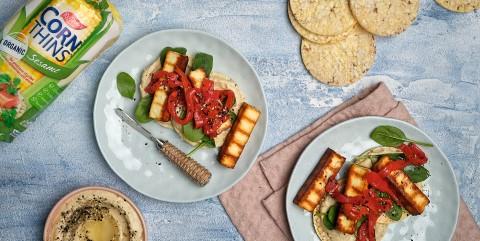How Your Gut Microbiome May Impact Your Taste Preferences

We all have different taste preferences. Some people love the taste of spicy foods or bitter lemon while others find great displeasure in these tastes. Your exposure to certain tastes like bitter, sweet, sour, salty, or pungent can increase acceptance of these tastes. A strategy to increase acceptance to certain tastes you may not have considered is the role that your gut microbiome may play promoting acceptance to certain tastes.
A recent study investigated the effects of your gut microbiome on how taste was perceived. The researchers used 100 participants. These were 52% women and 48% men. The researchers assessed the participants responsiveness to pungent, sweet, sour, and salty flavors. The participants recorded a 4-day dietary record, as well as a number of psychological questionnaires. They also provided a single stool sample to assess the types of microbes living in each participant.
Researchers found that there were two distinct profiles. The first, hyper responders or people who were very sensitive to bitter, sweet, sour, salty, and pungent. The second group where hypo responders who did not experience these tastes very strongly.
Interestingly, those participants who were hypo responders had a higher diversity of microbes and 11 different types of health promoting microbes. This included the genus Eubacterium xylanophilum_ group. Researchers found that those participants who were hyper responders to tastes had higher ‘pleasure-orientated’ attitudes. Two pro-inflammatory microbes, the genera Ruminococcus gnavus group, and Eggerthella were present in the hyper responders to taste.
The hypo responders also reported in the food diary a diet which included more fibers and vegetable proteins. In contrast, the hyper responders had a diet which included more saturated fats like those found in animal-based foods like meat. While more research is needed, this provides potential insight to the link between taste preferences, diet preferences and your gut microbiome.
To promote a healthy gut microbiome and taste preferences which support a healthy gut microbiome, a lifestyle strategy recommended is to include 30 different plant-based foods a week. This can include wholegrains and whole grain containing foods like brown, black, or red rice, wholegrain couscous, quinoa, wholegrain crackers, oats, and Corn Thins slices. Also, nuts, seeds, legumes, vegetables, and fruits. Each plant-based food provides your health promoting microbes with the fuel it needs to stay alive and thrive such as prebiotic fiber and compounds like polyphenols.
To reduce the amount of saturated fat in your diet aim for no more than 350-500g of lean red meat a week, selecting leaner cuts of white meat like chicken bread or turkey breast. Also, including 2-3 serves of 100g of seafood each week. Finally, limiting processed meats like salami, ham, bacon, and lunch meats.
In addition, try swapping one or two meals with animal proteins for plant-proteins a week. Such as replacing the red meat in a mince for kidney beans or try using grilled tofu or jackfruit instead of a steak or chicken. To make your meals taste meatier try adding umami flavors like mushrooms, tomatoes, miso, or nutritional yeast to your dish. Also, using meaty spices like poultry seasoning, jerk, Italian, or old Bay. Thirdly, try using hearty textures like jackfruit, tempeh, seitan, eggplant, or mushrooms.
Take home message: Your gut plays a powerful role in your health and this new research adds another potential reason to keep your gut microbiome composed of a healthy variety and type of microbe. It may allow greater acceptance and enjoyment of the tastes which are linked to foods that promote overall health and well-being such as bitter associated with certain vegetables.
Reference:
- Leonardo Menghi, Danny Cliceri, Francesca Fava, Massimo Pindo, Giulia Gaudioso, Erika Stefani, Davide Giacalone, Flavia Gasperi, Variations in oral responsiveness associate with specific signatures in the gut microbiota and modulate dietary habits, Food Quality and Preference, Volume 106, 2023, 104790, ISSN 0950-3293, https://doi.org/10.1016/j.foodqual.2022.104790. https://www.sciencedirect.com/science/article/pii/S0950329322002658)